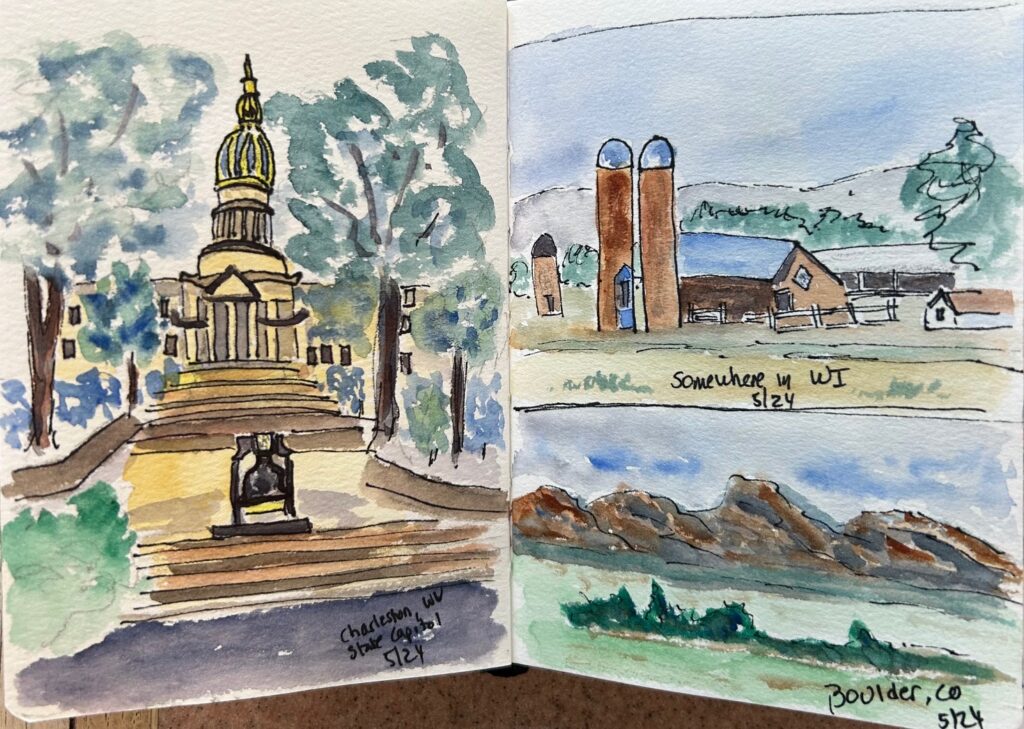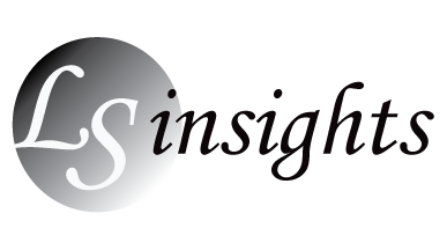
My husband and I recently took a month-long road trip across our country, visiting family and friends along the way. On one of our stops, we visited the very worthwhile National World War I Museum and Memorial in Kansas City, Missouri.
When I visit a history museum, I tend to view the content through that historical lens, without necessarily connecting it to my own experience. What so startled me about this museum was how close the conditions that led to WWI mimic our circumstances today, even if the details are quite different.
When I studied WWI in graduate school, I learned that the assassination of Archduke Ferdinand of Austria-Hungary triggered the start. I didn’t appreciate how this was just the culminating event of intense political and social upheaval, as well as known and secret political alignments that compelled many countries to join what came to be a world war.
It’s hard for us to imagine how much change was afoot in the years before WWI began in 1914. Colonization divided the world among a handful of European powers, leading to significant resentment. European royal families ruled most of Europe, and their perceived excesses exacerbated grievances among the impoverished majority. Technological advancements allowed much more sophisticated warfare, changing the nature of war forever. The recent introduction of electricity as well as mechanical advances raised expectations of a better life for even the poorest. Industrialization brought horrible working conditions for so many migrating from the farm to cramped, dirty cities for little pay. Social upheaval and economic distress were widespread, spawning an appetite for new forms of political philosophy, such as communism and fascism.
Similarities of then and now
This historical event from 100 years ago felt unexpectedly familiar. Deep bitterness had permeated the social order just when technology was changing how society conducted itself.
The common denominator then and now was privation, fear of losing privilege, significant technological change, and narcissistic leaders. What’s starkly different is the type of technological transformation (our current digital revolution vs the industrial revolution of the 19th and 20th centuries), and the speed of media, i.e., our 24-hour news cycle and fragmented media.
Imagine how destabilizing the following must have felt before, during and following WWI and WWII:
- The switch from horse-drawn carriages to motorized vehicles, not to mention the prospect of the flying machine, aka air flight.
- Years of colonization by those who had no interest in understanding the local culture.
- The Russian revolution and murder of the Czar and his family, leading to Lenin and then Stalin’s communist system, and the creation of the USSR and its Iron Curtain across Eastern Europe.
- The horrible loss of life from a war (WWI) while few understood why they were in it.
- Influenza that killed an estimated 20-50 million people world-wide.
- Japan’s invasion of China, which then experienced massive restructuring (and famine) under Mao.
- Severe financial distress, including massive unemployment, stemming from interwar reparations (for Germany), the Great Depression and the breakdown of the gold standard.
- Massive global migration due to economic, religious and political hardship.
- Narcissistic leaders (i.e., Trotsky, Lenin, Hitler, Stalin, Mao) who cared more about power than the welfare of their people.
World War I was to be the war to end all wars, but instead laid the groundwork for WWII and Hitler’s rise. Then, the hard-fought victory over Germany and Japan in WWII led to the new world order, which divided power between Western democracies and the Soviet Union’s sphere of influence for the next forty years.
Are we on the brink?
Is that where we are now – on the brink of a new world order? Political polarization is rampant all over the globe. An aggrieved Russia is trying to avenge its humiliation following the fall of its communist system and empire. Voters in democratic countries are falling for authoritarian leadership around the world.
On the one hand, visiting this museum made me feel comforted that today’s instability is the most common theme in human history. We have been conditioned to think that the relative calm (even including our many limited wars) of the last 80 years is normal, when in fact it’s historically an aberration.
On the other hand, could the conditions we find ourselves in lead us unwittingly into a radical, harmful change, akin to World War I? Our coming election will determine our direction and influence others, since what happens in the United States often affects political directions around the world. Many Americans falling for MAGA don’t realize that their vote would be a gift to China and Russia, whose power-hungry leaders are chomping at the pit to alter the world order – against democracy.
Controlling despair
I don’t have good advice for controlling the despair I feel about losing democracy and the progress made in the recent past, other than reducing my news intake. Being Jewish, my struggle is balancing how close to 1930’s Germany we are in (when only the wisest, luckiest Jews got out) vs faith in our democratic institutions and their ability to withstand MAGA’s worst tendencies.
Learning history is a salve for me. I appreciate the analysis of Rachel Maddow, who reminds us of earlier periods in US history when we’ve overcame fascist tendencies during and following WWII, and corrupt leaders (i.e., Vice President Agnew and President Nixon) during the Watergate period of the 1970s. Her consistent message in her MSNBC show, her podcasts and books are that individual action matters.
We’ve been saved repeatedly by brave individuals who stood up in the face of powerful, dangerous actors. Will such courage continue and be successful in the future?
Just like in the early twentieth century, we are in a period of fear. Fear of change, suspicion of the other, worry about losing privilege. These fears are provoking a vocal minority to lie, threaten political violence and retribution, and undermine our core values and many social norms that have been the mainstay in the United States for decades or centuries.
For the first time, I as an American can relate to other countries and periods of history when things go south. The United States no longer has the moral authority to think bad things can’t happen here (slavery and treatment of Native Americans notwithstanding).
Darwinian
It seems Darwin was right, even about our social order. Maybe progress can only be made slowly. Electing a black President and expanding gay and gender rights were too threatening to too many in our society. As the old saying goes – “two steps forward, one step back.” I just hope the expected regression of this phase does not result in more steps back.
As our crazy political season ramps up, I will try to stay positive and hopeful that we can rise above our current strife. If you have a good way of coping or framing the situation we’re in, I’d love to hear it.
Two Recommended Listens from KERA’s Think podcast:
“Life, liberty and the pursuit of grievances” – interview with the New York Times Frank Bruni.
“Congress is not gridlocked. No really” – a more hopeful interview with David Leonhardt, a senior writer at The New York Times magazine.


Scary times. I wish we had more objective media coverage on both sides instead of constant campaigning so that we could all be better informed
Great conversation Linda. I’ll build on your narrative and suggest sustainability collapses as the disparity in well-being reaches a breaking point where the vast majority are no longer benefiting from the rule-of-law, norms and institutions that have failed them for decades. Welcome to America 2024. All of us experiencing abundance are massively vested in business-as-usual while the vast underserved population are easily swayed that we need to blow it up. It becomes so much easier to hear fear, blame, and alternative facts than “trust me” we care while suffering from a lack of financial and health well-being. Thus, my assertion that the exponentially growing gap in well-being is a far greater threat to the planet than climate change. The scary world transition to authoritarianism is built on this gap and the ensuing authoritarian leaders will kill any chance of persistent climate action. Just a thought.
So well written, as usual, Linda. I am also reducing how much of the news cycle I take in. My faith in the decency of humanity is definitely shaken and I struggle to see how our country can have a positive outcome from the upcoming election. Thank you for voicing your concerns in such a thoughtful way. It’s comforting to know like minds are out there.
Incredible insights and analysis Linda. Painful to think about history repeating itself. The recent vote in France seems to be the latest example. One can only hope that come fall in the US, people will stand up and vote for democracy.
On a lighter note, it was great to be able to meet up out West, on your cross-country tour. Love that you took that road trip.
This is a thoughtful, heartfelt and complex piece to digest and it speaks to issues that are wider than just the US. It’s not just Americans that are having to come to grips with social and industrial changes.
Some thoughts:
I for one don’t fully understand the anger on the right that drives them to think that destroying the current system will yield an improvement for them or the country. Sure, inflation, deindustrialization and globalization have destabilized the economic security for many but there seems to be much more anger than this would justify.
If you think we’re confused, so are the Europeans. We just returned from Germany and quite a few there commented that they cannot understand what is taking place here. During our visit there I was also shocked to learn how fast and brutal the rise of Hitler was. it was only a matter of a few months before Dachau was opened–initially for political prisoners!
Lastly, you have covered a wide swath of time and history. It’s worth noting that over this time period (about 100 years), millions were lifted out of poverty and grueling living conditions as the world economy rose dramatically!